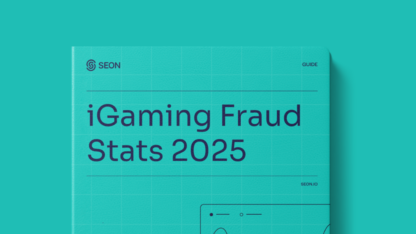Consumer affordability is measured in two different ways in iGaming. Failing to monitor either can have dramatic consequences for your business.
It’s no secret that regulators are mounting pressure on iGaming companies.
The UK Gambling Commission has been particularly heavy-handed lately, punishing operators with record-breaking fines for failing to meet responsible gambling and AML requirements.
It is indeed a timely issue. The COVID-19 pandemic lockdowns may have helped iGaming companies see a record in onboarding numbers, but it’s also made things harder for monitoring self-excluding, problem gamblers.
The same, by the way, is also true of brick and mortar casinos, which saw a number of patrons join tables they should have technically been blocked from.
So how do you ensure your users are only playing with money they can afford to lose? One of the options is to understand affordability and to deploy the right iGaming consumer affordability solutions.
Consumer Affordability Checks and Assessments
According to the Gambling-Related Harms All-Party Parliamentary Group (GRH-APPG), “Operators should have a clear understanding of what is affordable to online users based on the proportion of a gambler’s income…”.
Easier said than done.
Not just in terms of logistics, but also in terms of efficiency. How do you ensure players willingly give out their personal information? And how do you verify that it’s valid in the first place?
In fact, even the gambling commission acknowledges that “consumers may feel inconvenienced or uncomfortable by being required to provide data”.
Still, the burden is on iGaming companies’ shoulders. This is how they are currently doing their best to use consumer affordability solutions.
How Does an Affordability Check Work?
From a consumer perspective, an affordability check will take the form of questions to answer about your:

Proof of income

Savings

Inheritance

Winnings and one-off payments
This is sometimes referred to as a SOF check (source of funds).
But it doesn’t help with punters who mistrust submitting their financial information. Is the data kept private? Will it impact their credit rating? Is it one step too far in terms of how intrusive the questions are?
Now from the iGaming side, online casinos and gambling sites, it usually means purchasing an affordability check from a third-party service provider, such as Experian or Equifax.
With a consumer’s consent, these credit scoring agencies will use their Open Banking license to check current account information. This is the same technology that’s used for loans and mortgages, and it will provide:

Income verification

Income estimation

Debt information

Disposable income estimation
But the solution comes at a cost, and these checks aren’t cheap. So when the gambling commission recommends providing them for every punter who makes a loss of as little as £100, it’s easy to see how quickly it feels like an unfair or unsustainable model.
Can You Trust Official Affordability Checks?
So consumer affordability checks are cumbersome and expensive, but at least they should provide a safety net for your iGaming company, right?
Unfortunately, as we’ve seen with recent fines, it’s clear that you need to actively monitor your users.
We’ve seen numerous times that even open banking APIs can return low quality or outdated customer information – especially in emerging markets where financial data is scarce.
And worst of all: your users will actively work against the barriers you put in place to protect them.
Real-Time Consumer Affordability Monitoring
One extra safety net you can put in place: enable real-time consumer affordability monitoring. With a robust fraud detection platform, you should be able to create custom rules to:
- Calculate user spend rate.
- Create alerts for unusually large bets.
- Block actions that make you vulnerable to fines.
When you realise why the largest responsive gaming fines were issued, it’s easy to see how these monitoring alerts should have helped.
Luckily, as long as your fraud monitoring solution supports custom rules, custom fields, and productivity tools, like integration for real-time alerts, you should be able to automate monitoring for extra peace of mind.
Consumer Affordability In the Context of CLV
The second way the term affordability is used in iGaming is when looking at a customer’s lifetime value, or CLV.
And the good news here is that the same aforementioned fraud prevention features can also help you:
- Filter out low-CLV at the registration stage.
- Label them for monitoring.
- Instantly measure the risk of bonus abuse.
- Spot suspicious connections between accounts.
You can even refresh your CLV measurements in real-time, by monitoring player actions continually on your platform.
But before that, you need to ensure you have the right tools in place, as soon as players land on your website. Here is what you’ll need to understand exactly whether it’s worth onboarding them or not.
Spotting Low-CLV Customers at Registration
The good news is that you don’t need to go through a lengthy manual review to get an idea of whether you’re dealing with high or low CLV users.
As soon as they sign up to your site, you start gathering information on your users that will give strong indicators of:
- Potential signup reward versus initial deposit amount.
- Similarity with previous bonus abuser behaviour.
- Potential reuse of a similar software/hardware stack to connect to your site (pointing to multi-accounting).
- Whether they are part of a multi-accounting group (organised fraud).
- How quickly their actions triggered a specific bonus.
Within the SEON Sense dashboard, this will all be displayed via our upcoming user revenue widget.
The other rules that govern CLV calculations are very similar to how we look at bonus abusers. We deliver a fraud score, by feeding all the user information through risk rules. Examples include:
- Does the IP analysis point to a VPN, proxy or Tor node?
- Has the email address been created recently?
- Does the user have linked social media profiles?
- Does the browser spoofing detection point to an emulated system?
- Is the phone number from an eSIM?
- And much, much more…
The risk rules come preset for iGaming companies, and you can of course create custom rules with complete flexibility.
Best of all, you can use a machine-learning engine to suggest custom rules based on your historical business data. For instance, if you follow the data trail of multiple low-CLV customers, our engine could help highlight the patterns that will make it easier to block them from entering your platform as early as possible.
Protect your iGaming Business – And Your Users
iGaming operators are increasingly treading on thin ice. On the one hand, they want to grow their business as efficiently and safely as possible. On the other hand, they are also under an obligation to protect players from spending too much, too quickly.
The solution to both problems is to monitor user data and to understand what it reveals in terms of player behaviour.
But because fraudsters, problem gamblers and bonus abusers are adaptive, you can’t just rely on the official KYC and customer affordability checks. It’s your responsibility to deploy a strong safety net with real-time monitoring and alerts that will protect your business and customers at the same time.
To learn more about fraud attacks in the iGaming industry and our solution for preventing them, please download our guide today.
You might also be interested in reading about:
- SEON: Guide to Preventing iGaming Fraud
- SEON: Affiliate Fraud: How to Stop It
- SEON: Preventing Online Gambling Fraud
Learn more about
Data Enrichment | Browser Fingerprinting | Device Fingerprinting | Fraud Detection API | Fraud Detection Machine Learning






